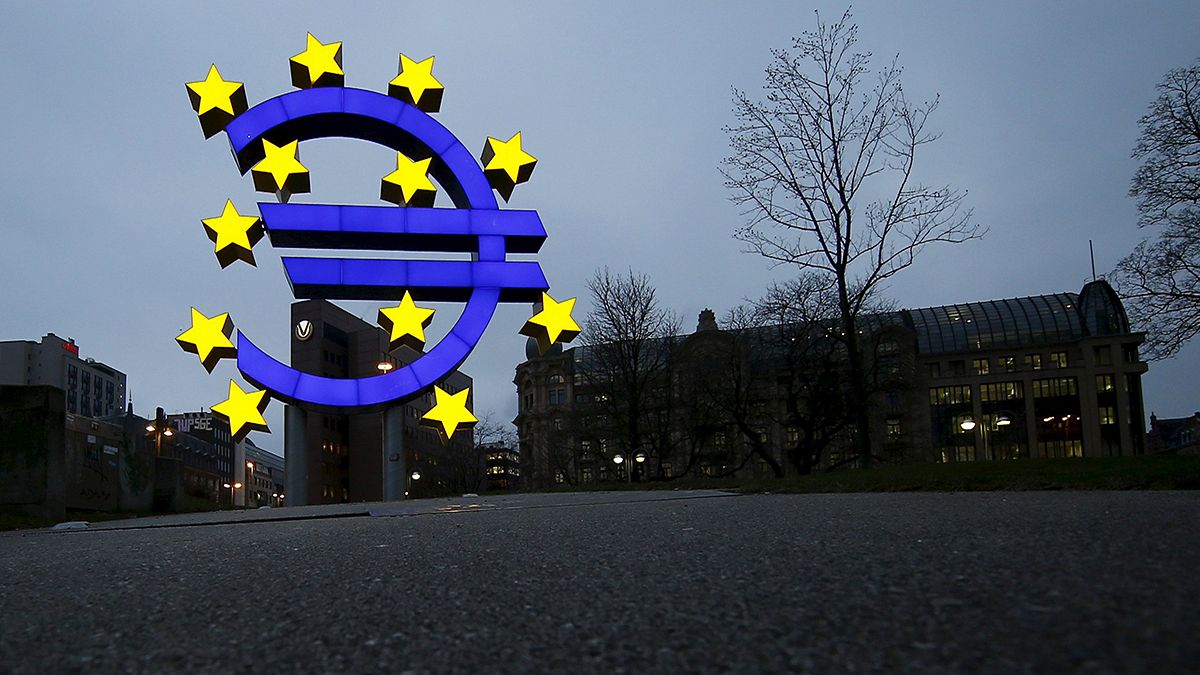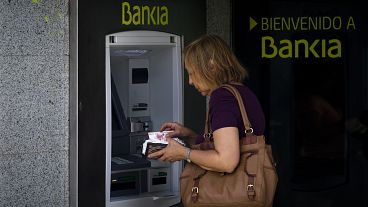Eurozone economic growth continues to be weak. GDP expanded 0.3 percent in Q4 of 2015 and rose 1.5 percent year-on-year. Greece slipped back into recession.
Eurozone economic growth continues to be weak.
In the final three months of last year gross domestic product (GDP) expanded 0.3 percent quarter-on-quarter, the same pace as in the July to September period.
For all of 2015, GDP in the 19 countries using the euro was up by 1.5 percent year-on-year.
Euro area GDP +0.3% in Q4 2015, +1.5% compared with Q4 2014 #Eurostathttps://t.co/JRBHfQSzyWpic.twitter.com/Z4ytC7o8JR
— EU_Eurostat (@EU_Eurostat) February 12, 2016
Industrial output contracted sharply at the end of the year, holding back the region’s economy. It fell 1.0 percent month-on-month in December for a 1.3 percent year-on-year fall.
Euro area industrial production -1.0% in Dec 15 over Nov 15, +1.1% over Dec 14 #Eurostathttps://t.co/CCLkII1JIhpic.twitter.com/lFTTmHX5cX
— EU_Eurostat (@EU_Eurostat) February 12, 2016
“Fourth quarter GDP growth confirms that while the eurozone recovery progressed, it remained stuck in second gear,” said Teunis Brosens, economist at ING Bank.
“While certainly not all is great in the eurozone, the state of the economy does not warrant the jittery markets we are witnessing this week,” he said.
However the feeling among economists is that current GDP growth rates are not enough to generate enough the higher inflation the European Central Bank wants to see. That means it will have to introduce more stimulus measures.
Spain leads the pack, Greece’s situation worsens
Germany, the region’s largest economy, sustained its momentum with 0.3 percent growth in Q4.
The second and third biggest, France and Italy, were weaker than expected at 0.2 percent and 0.1 percent respectively.
Spain performed relatively well with gross domestic product expanding 0.8 percent in the final three months of 2015.
The country may be mired in political uncertainty and with unemployment over 20 percent, but the economy was a bright spot, with growth of 3.5 percent for the whole year – the eurozone’s strongest performer.
Greece slipped back into recession with its second straight quarter of contraction – 0.6 percent – though economists had expected the fourth quarter numbers to be even worse.
For the previous quarter the economic situation was revised downwards. It turned out the Greek economy shrank 1.4 percent between July and September, not 0.9 percent as had been previously calculated.
Greece is again an increasing source of concern. The leftist government has promised to reform the country’s costly pension system as part of a multi-billion euro bailout deal with its international creditors, but is facing widespread protests against that idea.
Without the pensions overhaul, Greece cannot conclude a first assessment of its broader economic reforms which would pave the way for discussions on sorely needed debt relief.



